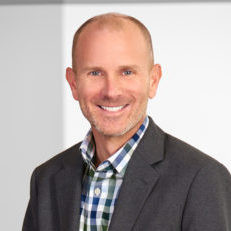A few days into this Pride Month, one of Paul Wolfe’s direct reports contacted him to ask for advice: His daughter came out to him as a member of the LGBTQ community and the employee wanted to know how to best support her.
For Wolfe, senior vice president and global head of HR at Indeed, it was a request that bridged his personal and professional worlds. Wolfe came out as gay in 1982 when he was 15, first telling three friends and then his mom. Sharing his reality helped him feel more fulfilled, yet it was a “scary” prospect, he says, especially at that time.
While coming out remains a deeply personal and often challenging journey, in the years between his experience and that of his employee’s daughter, the world has changed significantly in terms of understanding about LGBTQ identities, Wolfe says. In fact, according to a new survey of LGBTQ community members by Indeed, 68% are completely out at work; just 8% are not and don’t wish to be.
Despite that, many employees don’t appear to be getting the support and access to equality that they need. Fifty-four percent of respondents said they’re treated differently in the workplace because of their LGBTQ identity, and 41% said they’re treated unfairly. More than 40% have experienced harassment from co-workers and from supervisors. About half have also heard or read anti-LGBTQ remarks and slurs in the workplace.
A vast majority of respondents who experienced harassment or discrimination reported the incidents, yet less than half yielded any positive results.
See also: What the SCOTUS ruling on LGBTQ rights means for employers
Wolfe says the findings emphasize that, when it comes to issues of diversity, equity and inclusion, including for the LGBTQ community, “actions speak louder than words.”
“Some companies will throw a rainbow on their logo throughout the month of June but then don’t do anything else throughout the course of the year,” Wolfe says.
Especially in Pride Month, he adds, companies should be introspective about their support for their LGBTQ employees: “What are you doing to help educate all employees? How are you opening up safe spaces? How are you talking about intersectionality? It’s about creating an environment where people get to understand each other better.”
Doing that high-level work, he says, can help create cultures where discriminatory actions, statements and even jokes aren’t a part of the company culture. Wolfe knows the impact of such treatment firsthand.
When he was in his late 20s, a business leader at his then-company made an anti-gay joke more than once at a team meeting. After the second time, he approached the leader after the meeting and shared how the comment impacted him—to which the executive responded that he was a “typical gay and too sensitive.” For the first time in his career, Wolfe contacted HR and ultimately ended up leaving the company because of the environment.
In hindsight, he’s thankful he did, as his career later took him into HR leadership positions at Citysearch, Ticketmaster, Match.com, Orbitz Worldwide and Conde Nast, among others. He joined Indeed in 2014 and was out from day one, mentioning his husband in his initial interview.
Related: 4 ways HR can create and maintain inclusive workplaces
Now, in addition to overseeing the entire HR function, Wolfe is also the executive sponsor of the company’s LGBTQ employee resource group, iPride.
ERGs can be an “amazing force of nature” in terms of raising awareness and advancing inclusive cultures, he notes, advising HR leaders to rely closely on such groups for feedback—as well as ensure leaders are in tune with what their LGBTQ employees need.
“Listen,” he says. “[Support is] not one-size-fits-all; we’ve certainly seen that in the last 15 months: Solving a problem for one person is not going to necessarily solve it for someone else. So, listen to what they need and learn how you can get there.”
